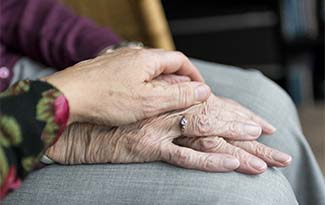What Services do Residential Care Homes Provide?

Residential care homes offer a vital service for older people and others who require support with daily living, but what exactly does that involve? Whether someone is dealing with dementia, a learning disability, physical frailty or another long-term condition, residential care homes provide safe, comfortable environments with tailored care and support to meet each individual's specific needs. At Templeton House, we believe in delivering a holistic approach to care that balances medical needs, emotional wellbeing and opportunities for social interaction.
Let's explore the different types of care and services residential care homes provide, and what families should consider when choosing the right setting for their loved ones.
Residential Care Homes Explained
Residential care homes are settings where people who require assistance with daily tasks live full time. These homes provide accommodation, meals, and 24/7 care and support from specially trained staff. The primary aim is to support people who can no longer live independently, either due to age, illness or disability.
Unlike nursing care homes, residential homes do not typically offer continuous medical care from a qualified nurse. However, they do support with many health-related tasks and can arrange access to external healthcare professionals when required.
Types of Care Provided
Residential care homes offer a broad spectrum of services to accommodate various levels of need. Some of the key types of care include:
1. Residential Care (sometimes called Personal Care)
One of the fundamental services offered is personal care. This includes assistance with:
- Washing, dressing, and bathing
- Toileting and continence management
- Mobility support and transferring (e.g. from bed to chair)
- Nail care and basic grooming
- Administering medication as prescribed
These tasks are carried out by specially trained staff who understand the importance of dignity, privacy, and person centred care.
2. Nursing Care
Although not all residential homes provide nursing care, some residential care home - especially those classified as nursing care homes - employ qualified nurses to provide 24-hour clinical support. Nursing care is suitable for people with more complex medical needs, such as:
- Chronic health conditions that require ongoing monitoring
- Recovery after surgery or injury
- Mobility issues requiring hoists or specialised equipment
- Conditions like Parkinson's disease, multiple sclerosis, or advanced dementia
3. Dementia Care
Many residential care homes, including Templeton House provide advanced dementia care for those living with Alzheimer's disease or other forms of dementia. Dementia care involves:
- Creating a structured daily routine
- Reducing anxiety and confusion
- Using sensory rooms to provide stimulation and relaxation
- Delivering activities that promote memory and engagement
Staff receive specialised training in understanding the behaviours and communication needs of people with dementia.
4. Respite Care
Respite care offers temporary accommodation and care services, often used by families who need a break from caregiving duties. This type of care is also beneficial for people recovering from illness or surgery and who are not ready to return home.
5. Palliative and End of Life Care
Compassionate end of life care, also known as palliative care, is offered in many residential settings. This service provides pain management, emotional support, and a calm environment for those in the final stages of life. Families are encouraged to be involved and supported throughout the process.
6. Support and Mental Health Issues and Learning Disabilities
Some residential homes are equipped to support people with ongoing mental health issues or a learning disability. These homes provide structured routines, emotional support, and tailored social activities that help individuals thrive.
Daily Living Support and Household Chores
In addition to clinical and personal care, residential homes also provide support with daily living tasks. This includes:
- Housekeeping and laundry
- Meal preparation and tailored nutrition
- Serving meals in a communal dining area or in the resident's own bedroom
- Help with managing finances (where appropriate and with consent)
- Organising GP visits or hospital appointments
By removing the burden of these everyday tasks, residents are free to enjoy their time, focus on their health, and engage in meaningful activities.
Social Interaction and Activities
Social interaction is key to wellbeing. That's why care homes offer a variety of social activities and events that help residents stay connected and engaged. These might include:
- Group exercise classes and fresh air walks
- Arts and crafts sessions
- Musical entertainment and themed events
- Visits from local schools or community groups
- Day trips and outings to local attractions
- Gardening, games, or book clubs
At Templeton House, we create a vibrant community where every resident can enjoy life and form meaningful connections.
Medical Care and Health Monitoring
While residential care homes don't typically provide nursing care in the same way nursing care homes do, they still offer essential health support. Services may include:
- Administering prescribed medication
- Monitoring blood pressure, blood sugar levels, and other vital signs
- Arranging visits from district nurses or GPs
- Supporting with recovery after hospital discharge
- Liaising with social services, the NHS, or local authority healthcare providers
Homes with more complex medical needs may provide nursing care on-site or have arrangements with nearby medical professionals.
Person Centred and Specialist Care
One of the cornerstones of good residential care is the person centred approach. This means putting the individual's preferences, values, and personal history at the heart of the care plan. Each resident is treated as a unique individual with their own goals, routines, and choices.
Specialist care services may also be offered to meet specific needs such as:
- Parkinson's disease
- Stroke Rehabilitation
- Diabetes management
- Complex mobility issues
Staff receive ongoing specialised training to ensure they are equipped to deliver high-quality, compassionate care.
Accommodation and Facilities
Modern residential care homes offer a comfortable, home-from-home environment. Accommodation typically includes:
- An own bedroom with en-suite facilities
- Communal lounges and dining areas
- Gardens or outdoor spaces for fresh air and relaxation
- Activity rooms and sensory spaces
- On-site hairdressing or nail care services
Rooms may be personalised with furniture, photographs, or keepsakes from home to help residents feel settled and secure.
Who Pays for Residential Care?
Paying for residential care can be managed in different ways, depending on a person's financial circumstances and location.
- Local authority funding: In some cases, the local council will assess needs and provide funding for care services. This usually applies to those with limited savings or income.
- Self Funding: Individuals with assets above the threshold are typically expected to pay for their own care, known as self funding.
- Northern Ireland and Developed Nations: In Northern Ireland, Scotland, and Wales, different rules may apply regarding what services are funded and how assessments are made.
Families can also seek advice from social services or independent financial advisers to understand the options available.
Choosing the Right Care Home
Selecting the right residential care home is a major decision. Families should consider:
- The type of care offered
- The qualifications and experience of staff
- The atmosphere and cleanliness of the environment
- Activities and social opportunities available
- Location and ability to visit regularly
- Feedback from the Care Quality Commission (CQC) or other regulatory bodies
A good care home is one where residents are supported to live full, happy lives with dignity, safety, and choice.
Supporting Families and Providing Advice
Transitioning to a residential care setting can be emotional for families and residents alike. That's why quality care homes offer advice, emotional support, and clear communication throughout the process. Staff can help with:
- Understanding the assessment and funding process
- Navigating the application for local council support
- Transition planning and settling-in support
- Regular updates on the residents wellbeing and care plan
At Templeton House, we work in partnership with families to ensure their loved ones receive the highest standard of care.
Choosing the Right Home for You
Residential care homes provide a wide range of services to support people who require assistance with daily living, whether due to age, illness, or disability. From personal care and dementia support to social activities and nutritious meals, these homes offer a safe and nurturing residential setting where residents can enjoy life with dignity and purpose.
At Templeton House Care Home, we pride ourselves on delivering person centred care tailored to each individual. With specially trained staff, high-quality facilities, and a compassionate approach, we're here to help residents thrive - whatever their needs may be.
If you'd like more information or advice about the services we provide, or to arrange a visit, please get in touch with our friendly team. We're always here to support people and their families through every stage of the care journey.






